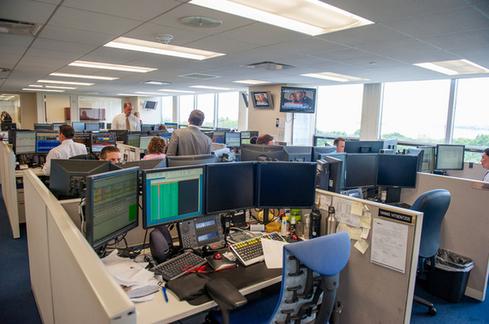09:45 PM
FSA and Institutional Investors Fly the Green Flag
In the wake of sentiment expressed at the World Economic Forum that financial services firms (and all companies) must go greener, the U.K.'s Financial Services Authority has issued a warning about the dangers of climate change as part of its 2007 Financial Risk Outlook, while a U.S.-based consortium of institutional investors released a scathing report on how companies in the S&P 500 disclose climate-related risks to investors.Climate change caused by human interaction with the planet is believed to be increasing the frequency of natural disasters, which is having a clear effect on the insurance industry. Of additional note is the FSA's warning that climate change may have a very tangible impact on capital markets as well, as investors may begin to require a higher premium for putting their money at risk. The report's warning adds that the uneven geographic distribution of natural disasters may lead to "considerable population migration and regional conflict," bringing further turmoil to the world's financial markets.
"Firms that are not seen to be acting either in the best interest of consumers as the external environment changes or ensuring that they minimize their climate impact could face severe reputational risks," says the report. Download the full text of the FSA's Financial Risk Outlook 2007 here.
Institutional investors are also becoming increasingly concerned with climate change, according to a recent report from Ceres/Calvert. The report on companies in the S&P 500 concludes that America's largest companies still aren't taking climate change seriously enough. Less than half (47 percent) of the S&P 500 companies responded to a global survey last year by the Carbon Disclosure Project requesting information about their climate risks and strategies, and those that did respond failed to provide much of the information investors are seeking. Nearly a third (30 percent) of the responders, in fact, declined to publicly release their responses, calling them "confidential."
The report was particularly critical of many financial services companies that, in many cases, have direct and substantial risks associated with climate change. Poor survey responses among lower-emitting companies -- in particular, retailers, banks and insurers -- was especially conspicuous, according to a press release. Many companies in these sectors provide insufficient climate disclosure to investors, even after suffering large financial losses from climate-related events, such as the 2005 hurricanes. Mindy S. Lubber, president of Ceres, said that all companies should disclose their risks using the three most common disclosure mechanisms: SEC filings, CDP, and sustainability reports using Global Reporting Initiative guidelines.
Calvert is a mutual fund company that has a line of socially responsible mutual funds with over $14 billion in assets under management, according to Dr. Julie Fox Gorte, vice president and chief social investment strategist at Calvert. Socially Responsible Investing (SRI) is an investment strategy that integrates social or environmental criteria into financial analysis, according to Calvert's Web site.
Ceres is network of investors, environmental organizations and other public interest groups working with companies and investors to address sustainability challenges such as global climate change.




















